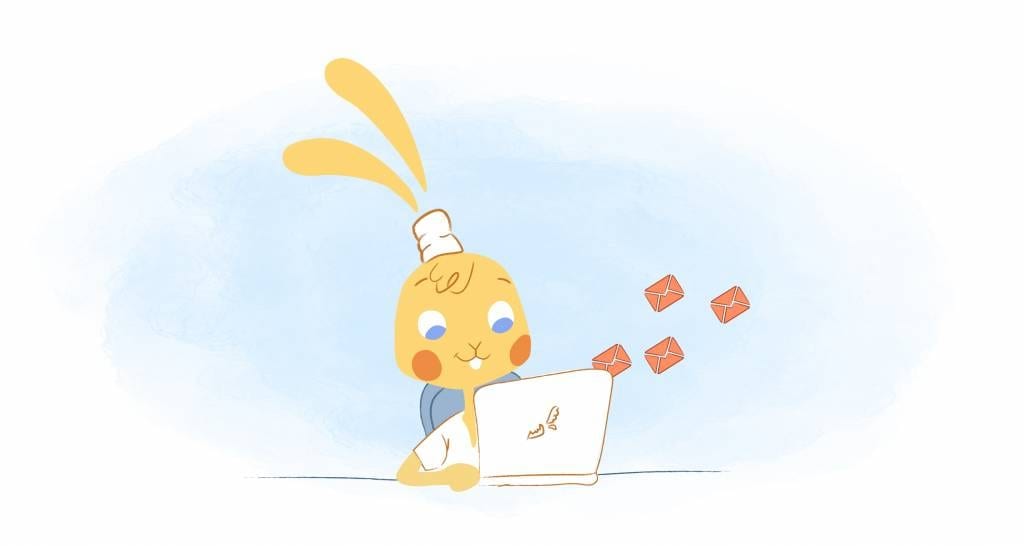

Are you overwhelmed by your email inbox? Is your email inbox clogged with dozens or even hundreds of emails? Are those emails a constant distraction for you?
If you answered ‘yes’ to any of these questions, it’s probably time to start prioritizing how to regain control of your inbox and reclaim your time. Having an overflowing email inbox can also leave you feeling extremely stressed and out of control.
However, you can make certain changes when dealing with your email that could help you manage your inbox better to be more productive. That way, you can spend even less time on email and have more time to concentrate on completing actual tasks that are on your schedule.
Here are a few strategies you can follow that will help you regain control of your inbox and reclaim your time.
Create Some Guidelines For Analyzing Emails
Many working people just feel overwhelmed with emails, as it takes too much time to try to manage them. But if you are getting lots of emails, you do not have to respond to every email in your inbox.
Determine which emails you want to deal with and others that may be much lower on the priority list. At my old job, there were several of us managing one intake email. We came up with a system where we’d mark the ones that were most important in red. That way, we knew to prioritize them by a certain time each day.
You can even add specific emails to your daily to-do list, so you know to schedule time to address them. I’ll explain some strategies to help you manage your general inbox below, but it’s important to mark the important emails as they come in, so they don’t get lost of buried.
Put It On the Calendar to Regain Control of Your Inbox
People do not expect you to respond to their emails within 5 seconds after they email you. The world will not end if you do not respond immediately. So why spend countless hours trying to check your inbox all the time?
Instead, here is a plan to manage your inbox. Hint: It starts by exactly scheduling a specific time block that you can dedicate to checking and responding to emails.
- Check your email inbox in the morning and determine which emails you need to respond to, when. Reviewing and prioritizing the list helps to minimize the feeling of being overwhelmed. If an email requires a simple reply that can be done in less than 5 minutes, reply to it immediately. Do not let it sit on your inbox and remind you to act on it each time you look at it.
- Do not recheck your inbox till after lunch. Remove those items that are less important from the list. Focus your energy and attention on only the emails you need to work on.
- Check again towards the end of the day, i.e., at 5 pm to triage any pending emails.
To make sure you do not check your inbox all day long, close your browser and turn off notifications.
When you check email only a few times a day, you can be more productive as you can keep distractions at bay.
Schedule Less Time For Email Than You Need
You can actually schedule less time for email than you need. Remember, work expands to fill the time available. Constantly checking emails decreases your productivity. So spend less time on your email and concentrate on getting to more important projects and tasks, and you’ll be able to regain control of your inbox successfully.
If you have similar email tasks on your to-do list, grouping those tasks together and scheduling time to deal with them at once can get your emails done in less time than you think.
Be sure to schedule a time when you check your email and process it rather than work on it countless hours. If you spend the entire day just checking and answering emails, you will be feeling extremely fatigued and out of control, and be unproductive.
No need to waste your time by writing the same messages repeatedly when writing the standard messages (e.g., making an introduction, declining an invitation, and so on).
Instead, create templates to use prewritten content for all of your recurring messages to save time.
Archive and File Away Emails When You’re Done With Them
If an email requires no action on your behalf, do not keep it in the inbox. Simply archive it immediately, or delete it. If a message requires a simple reply that can be done in a minute or less, respond right then and there and then file it away in the appropriate folder. Organizing your inbox with folders is one of the best strategies to fight back against email overwhelm.
Archiving emails that you have read or require no action on your behalf helps keep you focused on only the emails in your inbox that you have to act on.
Otherwise, your inbox will become clogged with unimportant or less important emails, and it can become difficult to find emails that require your attention. If your inbox is full of those emails that you are done with, those emails will constantly distract you each time you look at your inbox.
Once you clear up your email by archiving and deleting, you’ll only have to deal with what’s left during your scheduled time to sort through messages.
Manage Your Subscriptions With Unroll.me
Do you have subscriptions that you rarely use? If you receive newsletters and other emails regularly in your inbox that you do not read, then unsubscribe from them.
Unroll.me scans your inbox and helps you unsubscribe from all the unwanted emails you are subscribed to with one click. If you want to resubscribe to any subscription later, you can do so with this service anytime, as Unroll.me retains a record of all the emails and subscriptions you delete.
This service clears up space in your inbox by unsubscribing to all the unwanted newsletter emails that you are not reading or do not intend to read (e.g., daily deals alerts). It will also keep your inbox clean by rolling up those subscriptions you receive into a separate folder, so you can find them there whenever you want to read them.
So try Unroll.me to manage your subscriptions regain control of your inbox.
Be Efficient When Responding to Emails
Don’t you just hate those email exchanges that go on and on without any sign of stopping? Take control of the conversation and communicate efficiently to eliminate a lot fo back and forth. I like to do when someone emails me to put the ball back in their court and keep my emails concise and to the point. If you have multiple questions, ask them all in one email – not multiple exchanges.
Also, make sure you utilize candid responses, send screenshots when necessary, and do everything you can to
Manage expectations
It is good to reply and manage expectations. If you want to respond to an email today or tomorrow, it is fine. But if you want to respond to an email that requires some level of thought or response that you cannot get to today or tomorrow, dropping a short email that says when you will look at it is a nice way to manage expectations for the response.
Alternatively, if you will simply need more time to respond to an email, you can set the response’s expectation.
Summary
You’re probably not the only one struggling with email management issues. Checking your email too frequently at work will make you busy, but it will not make you productive. If you follow some or all of these strategies, you will regain control of your inbox and your time, making you more productive and efficient in dealing with your email











Choncé Maddox
Choncé Maddox is a professional writer who recently left her job in the web design industry to produce killer content and manage her own writing business full time. She is passionate about helping entrepreneurs be more productive and create a life they love by doing fulfilling work. On the side, she runs a podcast and blogs about getting out of debt at MyDebtEpiphany.com.